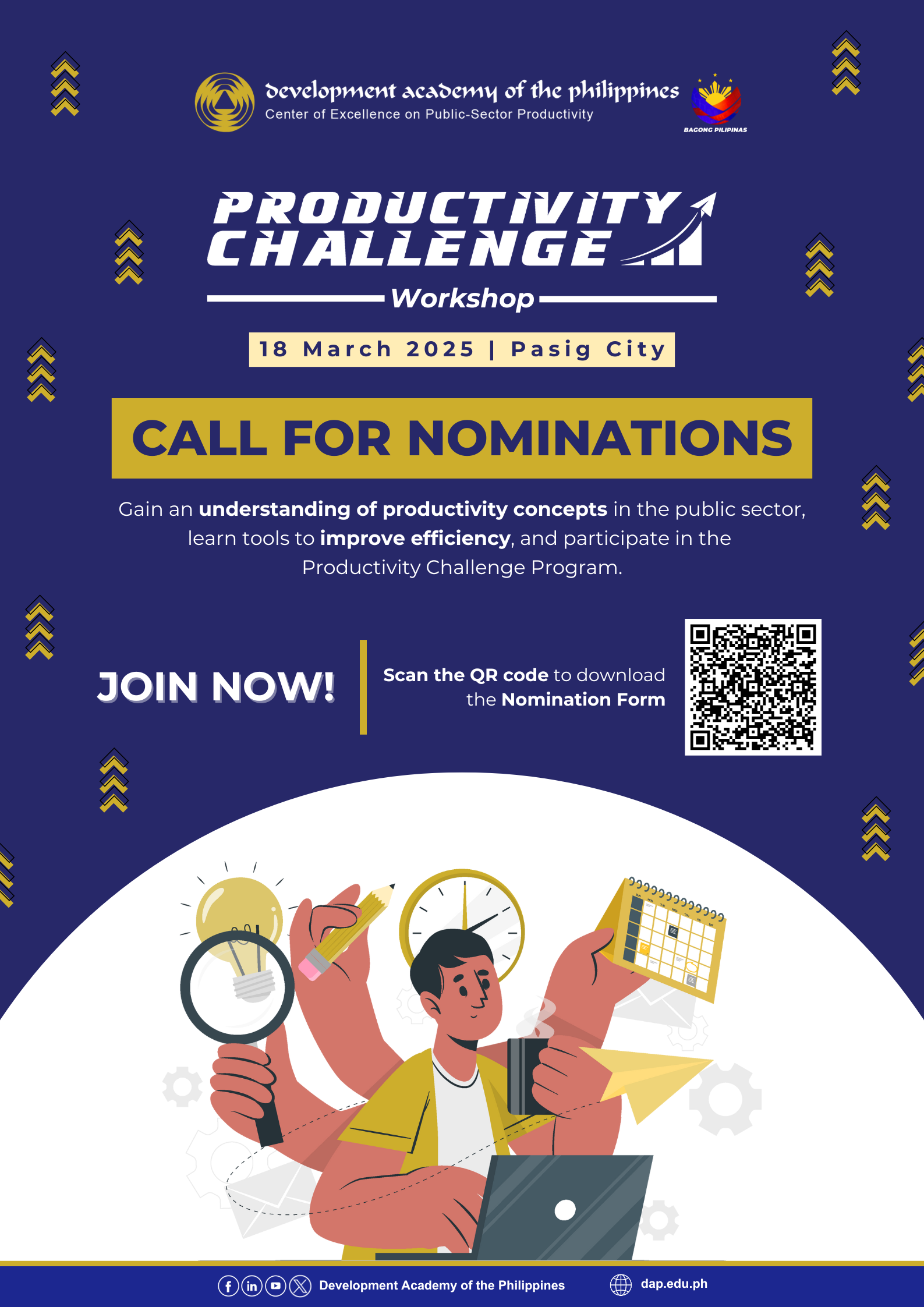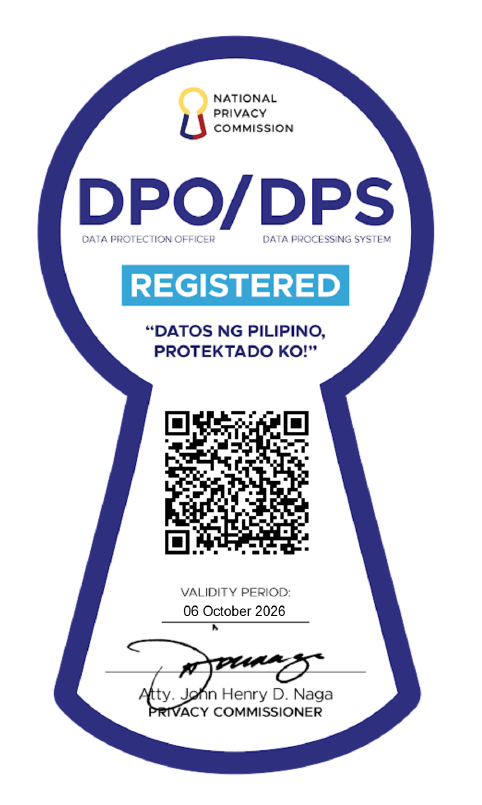The Public Sector Quality and Productivity Improvement Forum (PSQPIF) and Government Best Practice Recognition (GBPR) ceremony focused on steering the public sector to a more sustainable road towards response and recovery beyond the pandemic with the theme “Public Sector’s Response, Resiliency, and Foresight to Overcome Uncertainties beyond the Pandemic.” The back-to-back event, hosted by the Development Academy of the Philippines (DAP) on behalf of the Government Quality Management Committee (GQMC), was held on December 16-17.2021.
DAP President and CEO, Atty. Engelbert C. Caronan, Jr., emphasized that risk management is key to sustaining quality and productivity initiatives.


Forum highlights
Former Cabinet Secretary and Civil Service Commission Chair Ricardo L. Saludo, columnist of the Manila Times and founding president of CenSEI, highlighted how anticipatory planning provides the opportunity and platform for risk-based thinking for use and application in envisioning a future-ready public service delivery and what government can do to make it happen.
OIC-Assistant Secretary Atty. Adrian Jude G. Echaus, of the Department of Information and Communications Technology (DICT), talked about the application of risk management on data and information security in government. He presented the government’s efforts to drive digital transformation in the country, making information access widely accessible, reliable, and secure. He also emphasized the need to ensure protection of the most vulnerable sectors like the youth and those with limited digital literacy from the dangers of cyberspace.
Veronica Gabaldon, executive director of the Philippine Disaster Resilience Foundation (PDRF), discussed the application of risk management in planning and its impacts to sustainability. She presented the PDRF’s Business Continuity and Organizational Resilience Program which offers customized business continuity planning for different sectors and guidebooks that highlight internal capacities, recovery requirements and strategies that lean towards the continuous delivery of quality public service during an emergency or disaster.
DAP Fellow and Productivity Development Research Office Director Monica D. Saliendres zeroed in on adopting service quality standards (SQS) to reinforce risk-based thinking. Her presentation dwelt on several key points: risks on frontline government service delivery (gleaned from a quick survey with the forum attendees as respondents); defining SQS; managing risks through SQS; and, risk-based thinking for continuous improvement on frontline government service delivery.
Ronald Hugh Jackson, head of the Disaster Risk Reduction and Recovery Team for Building Resilience of the United Nations Development Program in Geneva, Switzerland talked about the advancement of risk-based policy, planning, and implementation. He said that the pandemic has exposed flaws in the management of risks and that various governments around the globe are taking steps to find solutions. “We are living in a world of complex and interconnected risks, and the challenge for policy makers and community leaders is to see that risks are changing at a rapid rate rendering traditional approaches increasingly ill-suited,” cautioned Jackson.
Recognition Rites
The second day of the event featured a knowledge sharing platform for the winners of GBPR for COVID-19 Response for 2020-2021. These include: the Bayanihan E-Skwela (Community Learning Hubs) and Free Shuttle and Ferry Service for Frontliners Project of the Office of the Vice President of the Philippines; the DOST-Davao Region Pandemic Manual by the Department of Science and Technology (DOST) Region XI; the UP Diliman COVID-19 Response Framework; the Puerto Princesa City Jail’s Tech4Ed Center E-Services of the Bureau of Jail Management and Penology MIMAROPA; and the Happy HR aPPP of the General Santos City local government unit.

The event culminated with the recognition ceremony for past and current recipients of the GBPR and GBPR COVID-19 Response from 2018, 2019, 2020 and 2021.
For details on the different best practices submitted, please visit the COE-PSP Knowledge Bank: https://coe-psp.dap.edu.ph/knowledge-bank/
XXX




